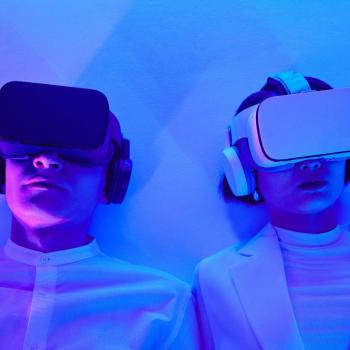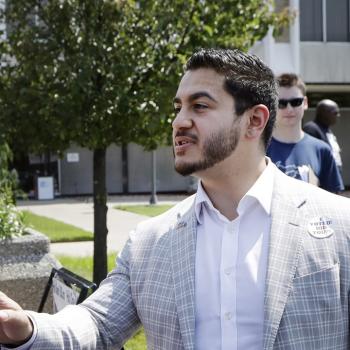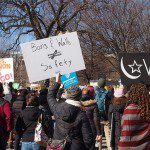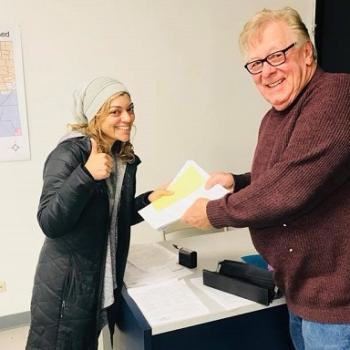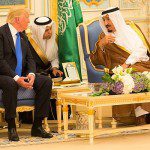 |
|
Here’s the story…
|
Are American theater-going audiences ready to plumb the depths of the American Muslim experience? Playwright Wajahat Ali, a recent graduate of UC Berkeley, thinks so. He’s spent the last few years recruiting talent from within the American Muslim community for a staged production of his play, “Domestic Crusaders“, which opens Friday, July 15th at the Berkeley Reperatory Theater in Berkeley, California. We spoke with Wajahat Ali to get his thoughts before the curtain goes up.
![]() Do you think the American Muslim experience can be mined for material to make an engaging theater experience for all, Muslim or not?
Do you think the American Muslim experience can be mined for material to make an engaging theater experience for all, Muslim or not?
WA: The unique experiences of any specific ethnic group can be mined for a rewarding, rich, and moving artistic experience provided there is an engaging script, well written dialogue, real characters, and themes which resonate with the audience; basically, the typical ingredient needed for any play to succeed. There is absolutely no reason why a compelling story, whether it take form in the shape of a comedy, drama, thriller, or tragedy, be any more or less engaging simply because the characters or actors do not fit the common, mainstream mold of being European, Judeo-Christian, or the minority du jour. An ethnocentric piece straddles the fine line of trying to be both true to the cultural heritage yet not excluding mainstream audiences. The way you avoid failing is to be as honest and true to your characters and dialogue, but also touch upon universal themes that are shared and experienced by all of humanity.
I visited Thailand in my youth and was surprised to see near poverty level boat merchants chilling in their bamboo stick houses – which sit about 8 feet above the water – watching American TV via a satellite cable that ran above their shack! In Pakistan back in the day, Baywatch was all the rage! I’m sure for the enlightening storylines and deep, profound characterizations… yeah, right. Point is, the Thai and the Desis weren’t American, European, white, or spoke English as their main language. Yet the American media still affected them. The American Muslim voice is especially unique considering the current geo-political cultural climate of the post 9-11 “us vs. them” mentality. People are talking about Islam, Muslims, and Muslim Americans – pundits on the left and right. Yet, we rarely hear and see an authentic Muslim American voice. As Muslims we follow a religion and thus have certain principles and moral guidelines that are shared by many other members of humanity who might not know of these similarities – and trust me, many dont! Also, due to the war on terror and the recent London bombings, people in America and the world sincerely want to know how American Muslims view these acts of terror, whether or not they condone or renounce them, and so forth. We are dealing with religion, culture, current politics, a war, civil liberties, the media, family drama, ethnic roots, and on and on. Now all we need is some miners.
![]() What has been the reaction of the Muslim community to what you are doing? Is there enthusiasm for a creative exploration of the American Muslim experience?
What has been the reaction of the Muslim community to what you are doing? Is there enthusiasm for a creative exploration of the American Muslim experience?
WA: Let’s be straight. You go to an aunty or uncle and say, “Salaams Aunty. Guess what? I wrote a play.” Their rishta (“marriage”) spidey sense buzzes and immediately responds with your face plummetting on rishta-potential stock market chart. Unfortunately, the American second or third generation mentality is not one that is generally supportive of artistic endeavors — a feeling shared by all minority groups. You come to America, you work hard, you get a good job, you prosper, you settle down, you don’t rock the boat. You get status, respect, a nice car, a good house, a wife who is your Alpha-Beta-Omega standard and you’re set. The professions of choice are 3: doctor, engineer, and the wild card (either lawyer, computer science, or business). However, the reaction to the play has been overwhelmingly positive – very rewarding and inspiring for the cast and crew. Muslims, when presented with a play that talks the way they talk and moves the way they move, really wakes them up and forces them to pay attention. Slowly – and my oh my is it slow – they begin to realize that artistic endeavors can really help advance the American Muslim voice into the mainstream. Also, we’re seeing lot of Muslim rappers now, people who are writing blogs, some kids messing around with documentary film features, and so forth. The talent is there, that’s for damn sure. They just need some encouragement. I hope this play and the efforts made by the cast and crew inspires these budding, young Muslim artists to stand up and shine and for their parents to be proud of their Allah-given talents.
![]() Comment on the talent you’ve come across in the Muslim community.
Comment on the talent you’ve come across in the Muslim community.
WA: As I said, the talent is there. Latent. Hidden. Hibernating. Begging to be found. This is what we discovered in our audition process for the play. The cast is all South Asian local actors, mostly Muslim, with most having very little to no “professional” theatre acting experience. We had hijabis, namazis, Sunnis, shia, college kids, uncles, engineers, and artistic liberal types all come out for the audition, where we encouraged raw talent to come and least try. It was very encouraging for these “non thespians” to see that there lies potential in this field for people who look and talk like them — even though those people are never shown on the screen. The actors of Domestic Crusaders all knocked it out of the part because they can identify with the characters and they have their Muslim South Asian experience which only enriches their fictional counterparts.
![]() Comment on the importance of Muslim artistic expression given the events of the last week (the London bombings).
Comment on the importance of Muslim artistic expression given the events of the last week (the London bombings).
WA: If Muslims stay silent, we will slowly be eradicated – intellectualy, culturally, and spirtually. The pundits say this 21st century is an ideological battleground: a clash of cultures and ideas, a war for the minds and thoughts of the youth. Imperialism doesnt have to take the shape of swords of guns – it can happen with talking heads on TV, academic books, and even internet blogs. If Muslims do not express their own voice, that voice will instead be outsourced to info-tainment pundits who will magically become “experts” on the Muslim experience (even though they are not Muslim) and use these tragedies for their self aggrandizement. Art can entertain, stimulate, prosletyze, propagandize, rile, inspire, and even educate. Why can’t Muslim artists educate non-Muslims about the Muslim experience? Why cant Muslim artists show off their mad skills to artistically express their feelings of hope and rage? Why do their voices have to be drowned out by the shrills of so-called experts? In this modern day colonial battle, where certain groups really do profit from humiliating members of certain minority groups, the most threatening Muslim is not necesarily the extremist fundo-jihadi with the beard to the waist, the sword unsheathed, and the eyes bulging. Rather, it is the articulate, talented, intelligent, intellectual, educated, calm, and well spoken Muslims who are most threatening.
These Muslim artists and thinkers – and there are many, mashallah – destroy stereotypes in 5 seconds by just opening their mouths and speaking. They can become big time players in the media-cultural world, inshallah. And then they can spread their message, whatever it may be, in a more free, global forum knowing they have a willing audience of fans – both Muslim and non-Muslim. This ain’t happening unless Muslims do it themselves. Just the sad reality of it. Unless you’re willing to tow a certain line and become a marionnette puppet whose strings are pulled by people with agendas. Start at the grassroots – but its time to start. The talent is there.
![]() Why is it important that the general American audience understand the American Muslim experience as you’ve portrayed it in “Crusaders”?
Why is it important that the general American audience understand the American Muslim experience as you’ve portrayed it in “Crusaders”?
WA: Muslims are human beings. 1.3 billions members of the 6.2 billion or so members of the human race. We are the fastest growing religion in America. We drive your cars, we clean your sheets, we build your houses and bridges, we clean your teeth, and we teach your children. Our rich history flows back and forth through1400 years, piggybacking on the geniuses of cultures past yet moving world civilization forward with the brilliant minds and pens of our own. Rumi is just one of many luminous examples. The world is getting smaller – the internet, globalization, telecommunications, radio, fax, movies – you name it. The world is at our fingertips, yet as Americans we unfortunately become America-centric, sometimes forgetting the earth is revolving around an axis, not around North America. The post 9-11 climate, for better of worse, has illuminated many of our similarities and unforuntately magnified our ignorance and lack of knowledge about much of the world population, asking “Why do they hate us?” Another question to ask, if I may boldly suggest it, is “Do they hate us?” Most would be surprised to say no, we do not. That is why we are Americans, just like you. We pay the taxes, we go to schools, we have kids and families, and want to live in a safe peaceful neighborhood. And hey, we too have something of our “Exotic” culture to offer to this cultural melting pot, this gumbo, bouillabaise, biryani stew we call Americana. In order to move forward towards a productive future, there must be dialogue. Things will be said. Feelings will be hurt. You might get agitated. This isn’t comfort food. But we have to be honest and we have to live together. One method, which is the most simple, elementary, and practical, is to hear the other side of the story. Rather, just hear their story – the American Muslim story. You might realize we are not that different after all.
Shahed Amanullah is editor-in-chief of altmuslim.com


